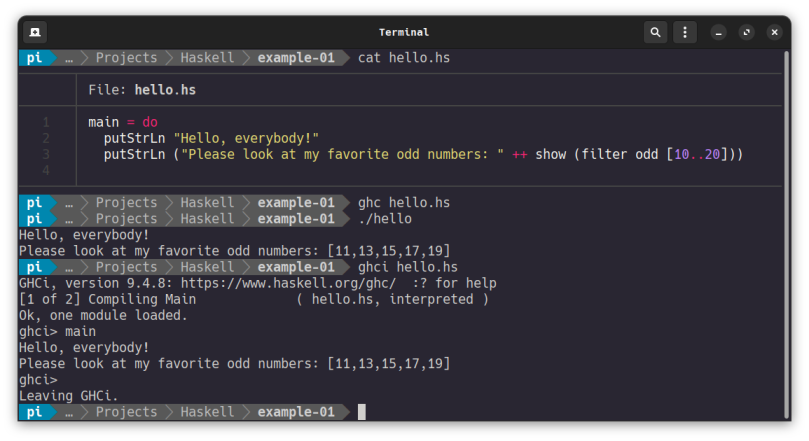I have been in something of a computer language exploratory phase recently. I don’t know how, but it was triggered when I watched an episode of Elementary named The Leviathan (season 1, episode 10, aired 13 December 2012). The Leviathan was a super-duper unbreakable vault that had been cracked twice, apparently by some sort of mathematical genius who used the Malbolge programming language to crack its randomly generated electronic ten digit access code. When I first saw the episode I thought the language was some sort of made-up crutch for the episode, but no, it actually exists (see link below for more details). The problem is that the example code show on the episode was copied from Malbolge’s Wikipedia page, and it was a mangled on the show. The complete example from Wikipedia only displays “Hello, world.”
I dug a little deeper and discovered that Malbolge is a descendant, if you will, of such other esoteric languages such as Brainfuck. Anyway, that got me looking into other not-quite-so-deliberately-obfuscated languages such as, well, Haskell. It is indeed cruel to lump Haskell with such languages as Malbolge and its ilk, but I never said I was particularly logical once I started down one of these odd paths of mine.
Anyway, here we are, and I have indeed installed Haskell on my Raspberry Pi. However, before you install Haskell, you’ll need to install the following libraries to support full a successful build of Haskell from its sources.
sudo apt install libffi-dev libgmp-dev libgmpxx4ldbl libncurses-dev libpkgconf3 pkg-config pkgconf pkgconf-bin
Once that’s done then you can proceed to install Haskell following the directions on its web page (again look at the links below).

This is a minimal proof of life of Haskell on a Raspberry Pi 5 running under Ubuntu 24.04. The examples are all shown on the web page, so there’s no need to go over them again. I have absolutely no idea what I can do with this unique language on this unique platform, but it will be interesting and fun to find out.
Links
Malbolge — https://en.wikipedia.org/wiki/Malbolge
Haskell — https://www.haskell.org/
Haskell, Getting Started — https://www.haskell.org/get-started/

You must be logged in to post a comment.